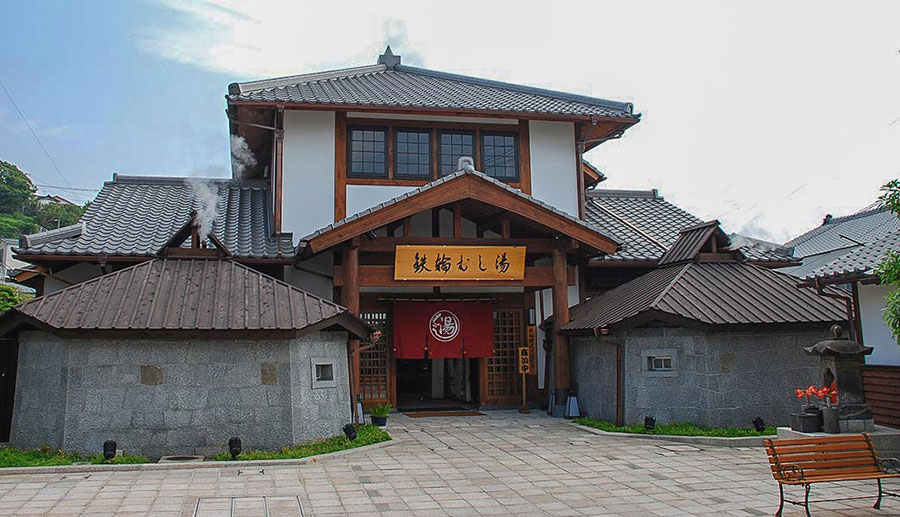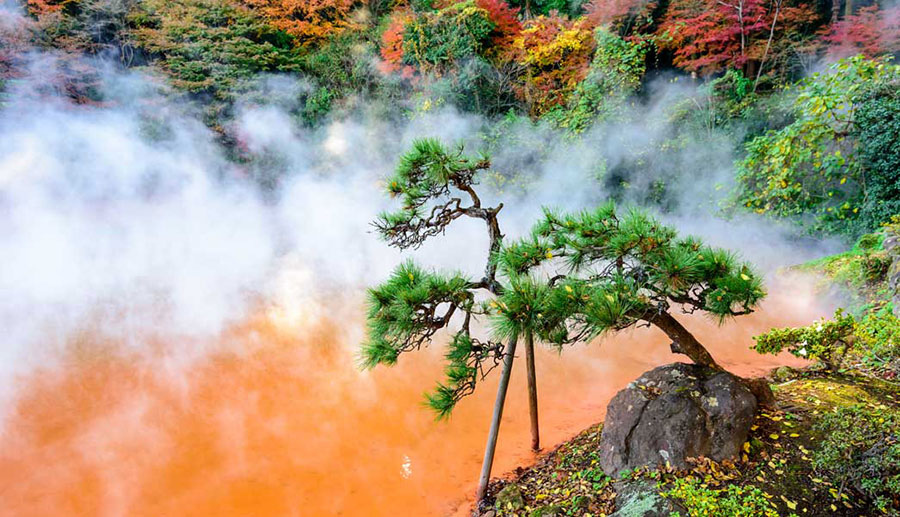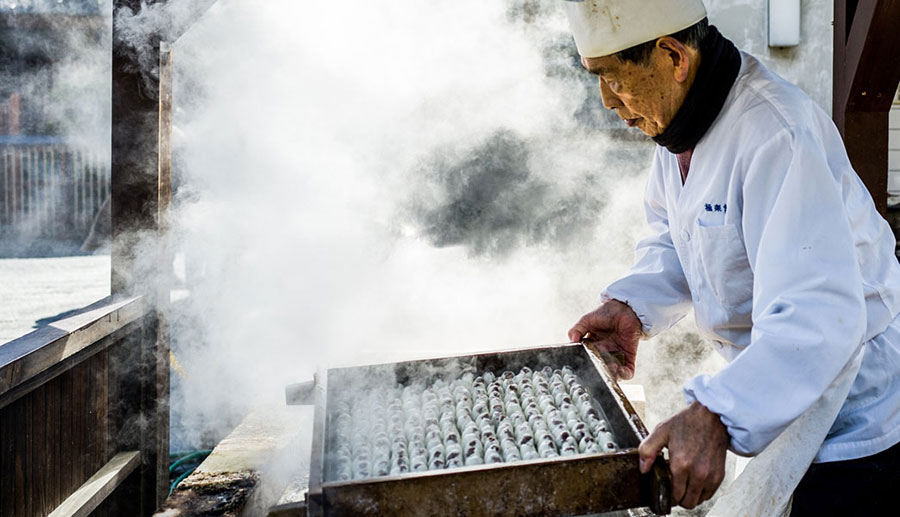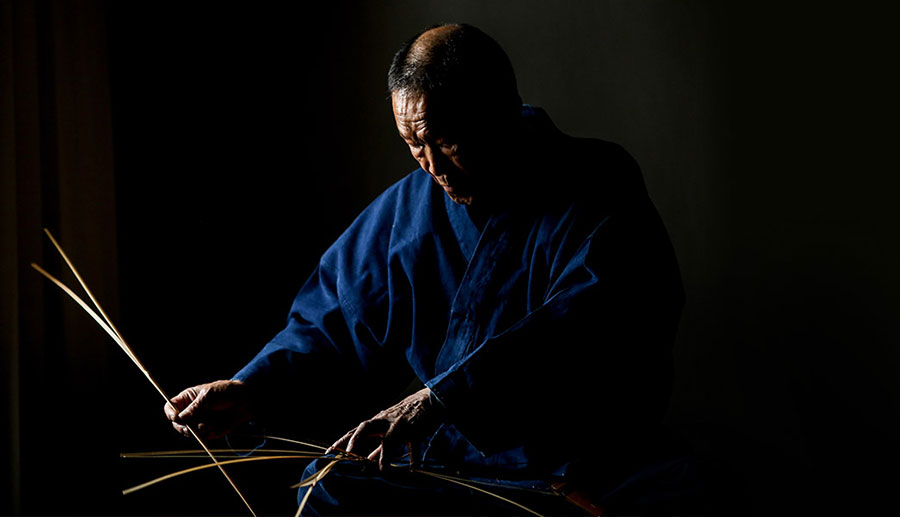
Another unique relaxation experience can be found at Kannawa Mushiyu, or Kannawa Steam Bath, founded by a Buddhist monk in 1276. The floor of a stone room, heated to a high temperature by onsen steam, is covered with a fragrant medicinal herb called sekisho, which encourages sweating. It is said that eight minutes lying on the floor is equivalent to the detoxifying effects of 30 minutes in a sauna. The Kannawa Steam Bath was awarded the Certificate of Excellence in 2017 by Trip Adviser.

A memorable Beppu experience is a tour of its “seven hells”, each hell being a curiosity of nature resulting from the springs that run underground. These include the Chi-no-ike Jigoku (or Pond-of-Blood Hell), with its boiling red clay and blood-red steam; the Yama Jigoku (or Mountain Hell), connected to the zoo, where you can watch animals bathing; and the Tatsumaki Jigoku (or Tornado Hell), which is a powerful geyser of hot onsen water.

A local culinary experience is to cook seafood, meat, and vegetables in the steam from the hot springs, a practice known as jigoku mushi or hell-steaming. Try this traditional cooking method at one of several locations in the Kannawa district, and then sit down to enjoy the meal.

In Beppu, bamboo is put to use in a variety of ways: for practical items, such as baskets and trays; crafts; and even cooling systems for onsen water. Since the Edo period (1603–1868), bamboo rice baskets have become popular throughout Japan.
The Beppu City Traditional Bamboo Crafts Center has a permanent exhibition displaying the history of bamboo craftsmanship in Beppu and the works of bamboo artisans, including many by Living National Treasure Shounsai Ikuno. At the centre, you can try your hand at making small bamboo crafts, which you can take home with you as a souvenir of your trip. The centre’s shop sells a range of striking bamboo products made by professional local artists.